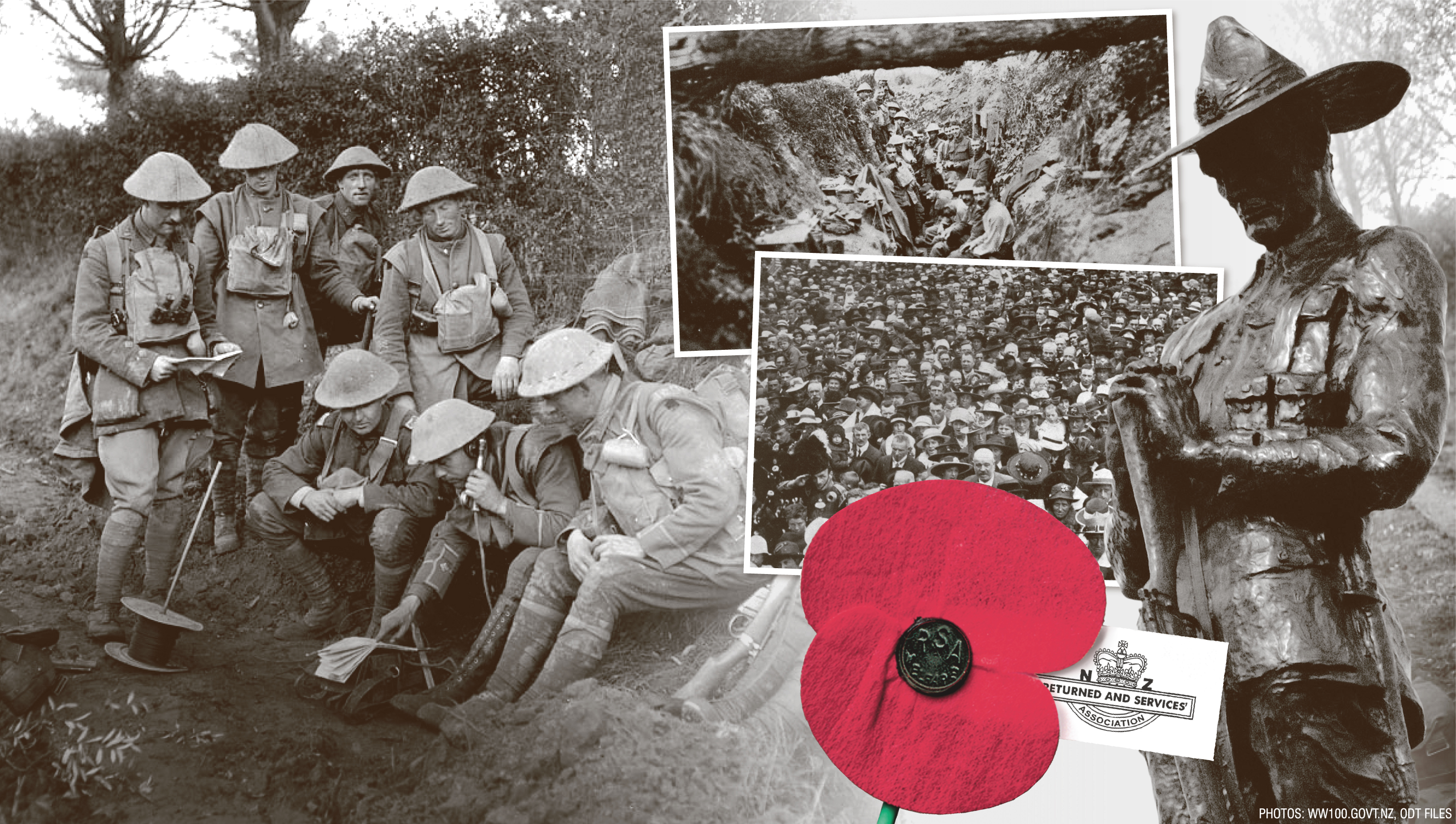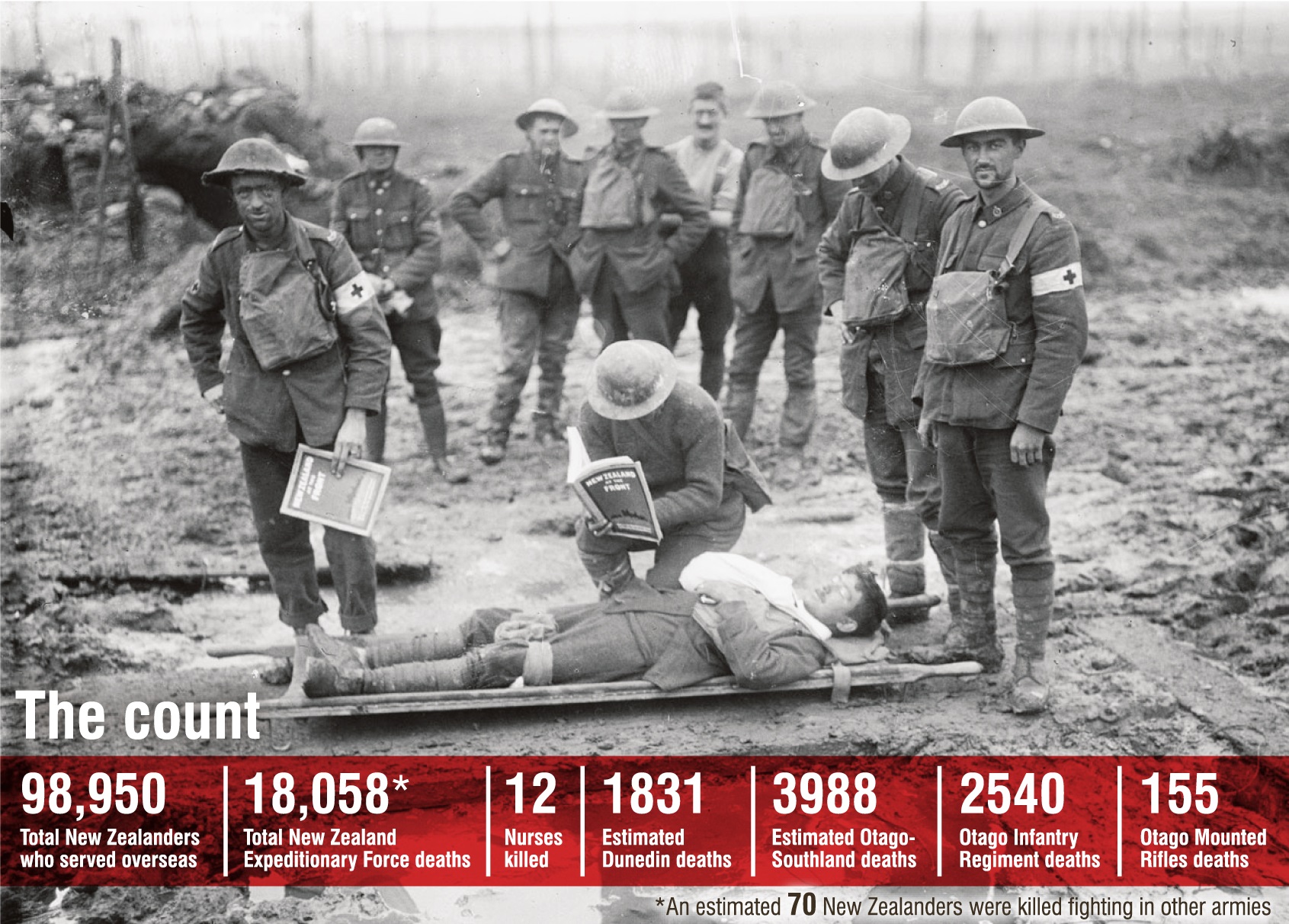Finally, after four years of death and destruction, on November 11, 1918, the guns fell silent. Mike Houlahan looks back at the cost of the war on Otago and Southland, and its legacy for the region.
In a world war every country suffers, and in World War 1 few countries suffered as badly as New Zealand.
"There is nowhere in New Zealand that we know of that wasn’t affected by the war, where somebody wasn’t killed," retired University of Otago history professor Tom Brooking says.
"Maybe someone will find a hamlet one day where that didn’t happen, but I don’t know of any.
"The cumulative loss was terrible for our whole society."
Almost 10% of New Zealand’s population served overseas in World War 1 — about one in five were killed.
The 1916 census put Dunedin’s population at 68,716 and the population of Otago-Southland at 191,147; with an estimated 1831 Dunedin war deaths and about 4000 across the province, the trauma was pervasive.
"People would have to have realised the cost of the war because of the way the war touched everybody," Toitu curator Sean Brosnahan said.
"We mapped the casualties in Dunedin with crosses, colour-coded for each year of the war, and the amazing impact of the visual was just how it touched every part of Dunedin, and in every year.
"If you lived in Dunedin in the war period, there is no way you wouldn’t have known someone who had died, or their families. That sense of constant loss must have been absolutely profound."

"There was a massive loss of key social capital — when you look at Otago Boys’ High with 201 names up there (on the Roll of Honour) that’s quite a lot of talent to just disappear.
"Those are people who would have gone on to become professionals, business people, farmers, and suddenly they just aren’t there."
The death rate for officers in the war was high, and that meant Otago was robbed of its future leaders in many spheres, Mr Brosnahan said.
"We must have lost the best in many cases — but who knows what the effect of losing those people was? It’s counterfactual history.
"But some of these guys who were outstanding leaders, men of great initiative, men of great vigour, were just suddenly snuffed out, and we don’t have the benefit of their future contribution to society — that’s something we can’t quantify, but it must have been an enormous cost."
Armistice Day was met with conflicting emotions in Dunedin and in France.
Back home, there had already been wild celebrations after a false report Germany had surrendered, and similarly euphoric scenes greeted the genuine surrender.
In contrast, the official history of the Otago Regiment records the Armistice was met with little fanfare, its author recording there was barely a shout from the men — more a sigh of relief.

"I think they were just war-weary beyond belief."
Although the shooting was over, there were still many months to go before the Otago soldiers came home.
Many were used as occupation troops in Germany; others were kept in reserve in England in case there was a need for their services again.
Physically wounded soldiers had been shipped home throughout the war, with more to come after the ceasefire.
Most of the physically well were back by late 1919, but for all soldiers the mental scars remained, Prof Brooking said.
"We made a mess of looking after returned servicemen. So did everybody, the Aussies were just as hopeless," Prof Brooking said.
"It was difficult for soldiers to talk honestly and openly about what had really happened — a lot of them probably just gave up, said ‘no-one is ever going to believe us anyway so we’ll just talk about it over a couple of beers at the RSA’ or something.
"How do you describe going to hell and back to people leading ordinary, well-adjusted, relatively normal lives back in New Zealand?"
Footnote: The Otago Daily Times will cease running the "For The Empire’s Cause" In Memoriam feature in the classified section on November 30.
For the past four years, the descendants of hundreds of local men who died in World War 1 have remembered their service by placing a notice in the column.
On November 30, the Otago Daily Times will publish notices for anyone who died on or after that date due to war related injuries. About 90 people with connections to Otago fall into that category.












